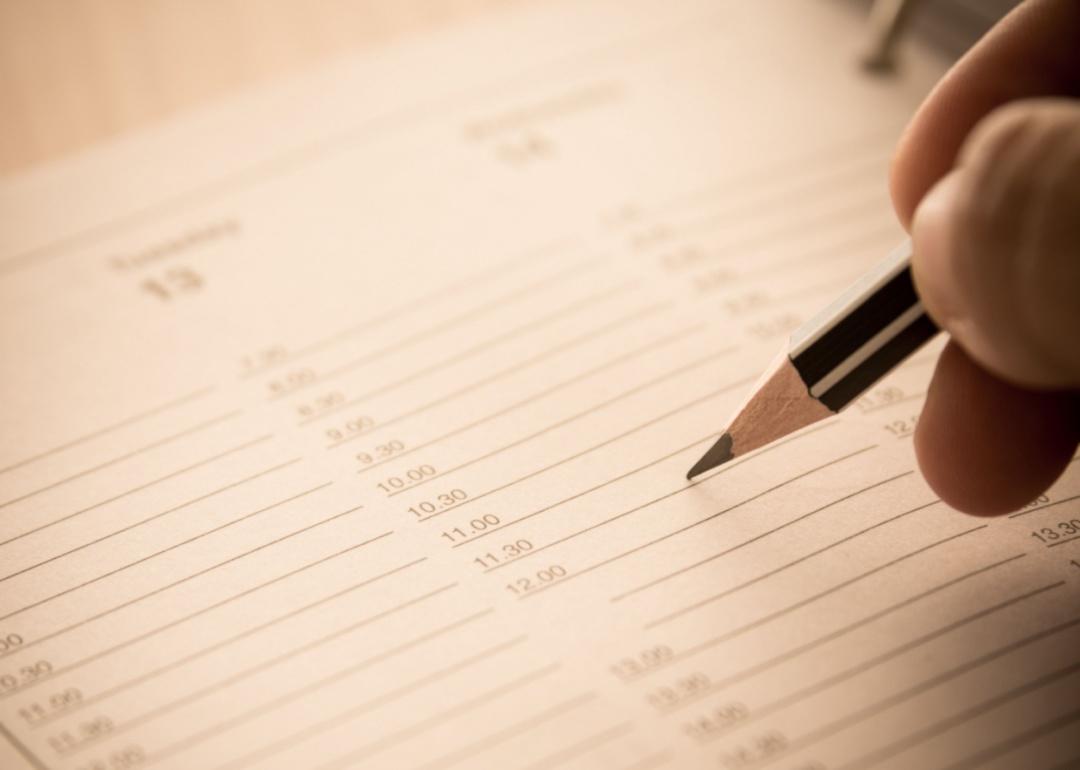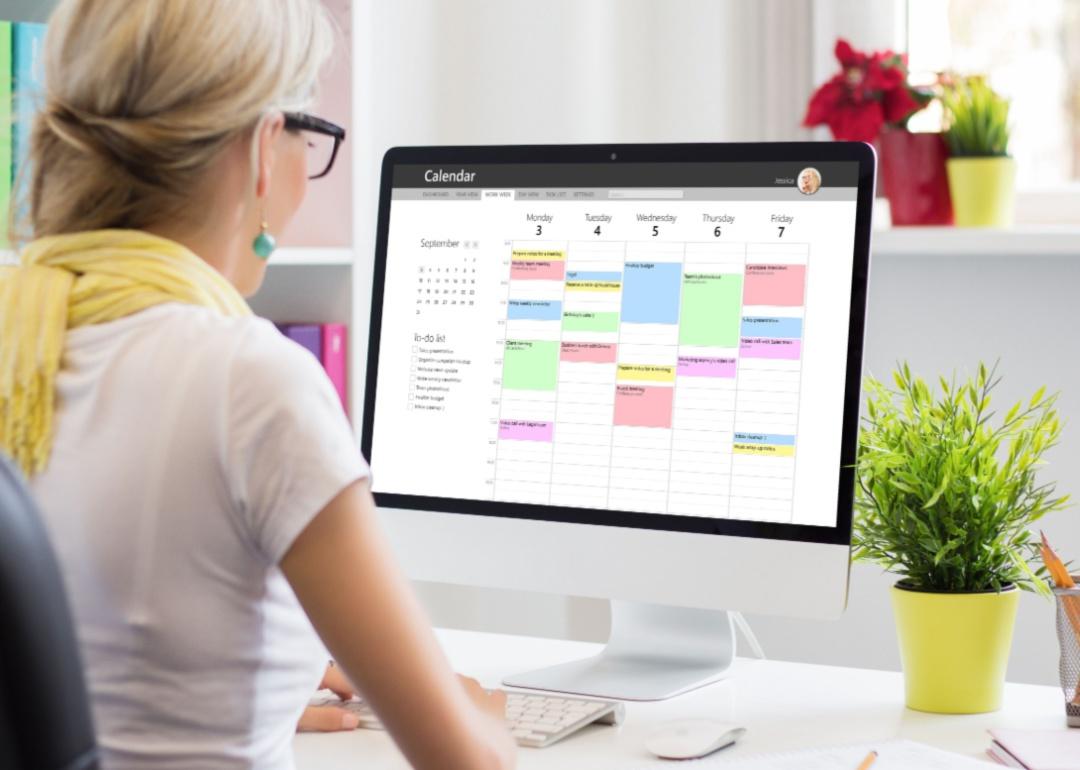
This story originally appeared on ClickUp and was produced and distributed in partnership with Stacker Studio.
How to set productivity goals for 2023
As the New Year arrives, many people make resolutions that they're going to get more done, whether it's at work or in their personal lives.
It can be hard to keep a resolution. Maybe you're trying to meet an unrealistic goal, or it isn't easy to make a new habit stick. If you want to be more productive—at anything—in 2023, set yourself up for success now.
To help you stay on course and motivated to meet those resolutions, ClickUp compiled a list of strategies for setting and keeping to productivity goals as we enter the New Year.

Do a time audit
If you struggle with finding enough hours in the day to complete everything, consider how you manage time. A time audit is a deep dive into how you spend your time every day.
By keeping a daily log, it's easier to identify activities that eat up time but don't really get much done. Social media scrolling, socializing with co-workers, and daydreaming can suck hours out of the day. A time audit is a simple tool to use when you need to boost your productivity and improve your time-management skills.

Break bad habits and build healthy ones
All habits, good and bad, come in loops, Charles Duhigg writes in his book "The Power of Habit." They start with a cue of some sort—a smell, a mood, a location—that triggers a routine (whatever the habit itself is) and a reward (like a sugar high or a caffeine rush). Understanding what your cues are and the rewards you get can help you determine if a habit is good for you.
It's never too late to break a bad habit, but it takes time and commitment to retrain the brain and form new habits. Having the motivation to change is the hardest part. Staying consistent is key when it comes to making and breaking habits.

Set schedules weekly
Sit down once a week, maybe on Sunday evening, and set your schedule, identifying top priorities for what needs to get done and clearing unnecessary activities.
Ensure you include the areas where you want to be more productive in the schedule so that it's built-in. Working out can be just as important—or more so—than attending a work meeting or industry event. Planning your time keeps you on task and in control of what you spend time doing.

Use checklists
A checklist is a simple way to prevent tasks from falling through the cracks. Whether it's grocery shopping, preparing a plane for flight, or running errands, checklists make it easier to track what you've accomplished and what still needs to be done. If you've never used a checklist before, start small to figure out what type works best for you.

Calendar focus blocks
Are you easily distracted throughout the day? Try blocking out time on your calendar for "focus blocks." Put the phone away, silence any notifications, and do not schedule meetings or appointments. A focus block is a time exclusively for thoughtful work. Like all new habits, start small and build up. Schedule a couple of focus blocks per week and see if you notice productivity improvement. Add more if you like.

Avoid multitasking
In a world full of distractions, multitasking is common—and may seem attractive. But people who are multitasking are less intelligent and less productive than people who focus. They are also more stressed out. Instead of doing everything all at once, focus on one thing at a time. You'll do it better and more efficiently—and have more time and energy to get on to other things.

Exercise
Don't forget to move your body. Many people sit for hours each day in front of a computer and stand up only rarely. People who sit less have improved mental well-being and productivity. So make sure to include exercise time on your calendar each week. Consistent physical activity is one of the easiest ways to improve your health.

Try out a proven time-management technique
Different people require different time-management strategies to succeed. There are a variety of proven techniques to choose from.
With the Pomodoro Technique, you set a timer for a particular task and focus on that until time runs out. Then you take a break before starting up again. This can be especially helpful for creative thinkers.
Procrastinators and people who do well under pressure may gain insight from Parkinson's Law; it's an axiom that says a task will take exactly as long as you're given to complete it. If you're able to set yourself a fixed deadline for each task, you're more likely to get them all done.
If neither of those sounds appealing, there are many other time-management techniques you can try out, such as the rapid planning method and the "pickle jar theory."



